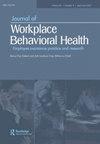从"我不知道我在做什么"到"我再也做不下去了"新冠肺炎大流行对两个学年K-12教育工作者心理影响的定性比较
IF 0.8
Q3 PUBLIC, ENVIRONMENTAL & OCCUPATIONAL HEALTH
引用次数: 0
摘要
COVID-19大流行在世界范围内引起了剧变,K-12教育工作者不得不迅速适应新的教学方法,这增加了他们的压力。作为回应,为教育工作者提供了支持性心理健康服务,包括电话/短信支持线、小组研讨会和自定进度的在线课程。在服务结束时,心理健康提供者编写了关于教育者经历的笔记。对这些服务和后续调查的记录进行了定性分析,比较了两个学年的大流行病教学经验。结果表明,最初,教育工作者被所需的快速调整所压倒,但努力满足学生的需求。随着疫情的持续,压力源转变为个人生活受到不受支持的影响,以及戒烟的想法。当教育工作者试图在被大流行打乱的教室和生活中恢复正常时,他们可能会受益于社区支持和系统性变革,以及持续的精神卫生保健,以支持他们的福祉。关键词:教育者福祉与心理健康大流行教学披露声明作者未报告潜在利益冲突。本项目由科罗拉多州行为健康办公室赞助;科罗拉多州公共卫生和环境部通过SAMHSA和FEMA;科罗拉多州立法机构;以及科罗拉多教育协会。本文章由计算机程序翻译,如有差异,请以英文原文为准。
From “I don’t know what I’m doing” to “I can’t do this anymore.” A qualitative comparison of the psychological impact of the COVID-19 pandemic among K-12 educators across two academic years
AbstractThe COVID-19 pandemic created worldwide upheaval, with K-12 educators among those who had to quickly adapt to new teaching methods which caused increased stress. In response, supportive mental health services, including a call/text support line, group workshops, and a self-paced online program, were offered to educators. At the end of the use of services, the mental health providers compiled notes about the educators’ experiences. The notes from these services and follow up surveys were analyzed qualitatively, comparing the experience of pandemic teaching across two academic years. Results indicate that initially, educators were overwhelmed by the rapid adjustments required, but tried to meet student needs. As the pandemic continued, stressors changed to feeling unsupported impacts on their personal lives, and thoughts of quitting. As educators attempt to navigate classrooms and lives that have been disrupted by the pandemic, they may benefit from both community support and systemic changes as well as ongoing mental health care to support their well-being.Keywords: Educator well-being and mental healthpandemic teaching Disclosure statementNo potential conflict of interest was reported by the author(s).Additional informationFundingThis project was sponsored by the Colorado Office of Behavioral Health; the Colorado Department of Public Health and Environment through SAMHSA and FEMA; the Colorado State Legislature; and the Colorado Education Association.
求助全文
通过发布文献求助,成功后即可免费获取论文全文。
去求助
来源期刊

Journal of Workplace Behavioral Health
PUBLIC, ENVIRONMENTAL & OCCUPATIONAL HEALTH-
CiteScore
2.40
自引率
6.70%
发文量
14
期刊介绍:
The Journal of Workplace Behavioral Health, retitled from Employee Assistance Quarterly to better reflect its expanded focus, presents innovative research, applied theory, and practical information to keep workplace human service administrators, counselors, and consultants up to date on the latest developments in the field. This refereed journal is an essential guide to best practice and research issues faced by EAP professionals who deal with work-related and personal issues including workplace and family wellness, employee benefits, and organizational development.
 求助内容:
求助内容: 应助结果提醒方式:
应助结果提醒方式:


